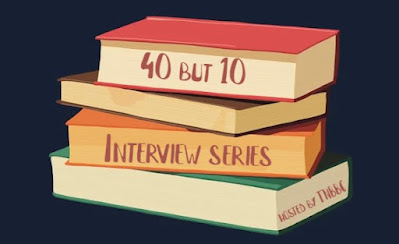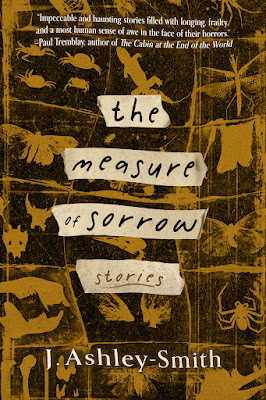I had decided to retire the literary Would You Rather series, but didn't want to stop interviews on the site all together. Instead, I've pulled together 40ish questions - some bookish, some silly - and have asked authors to limit themselves to answering only 10 of them. That way, it keeps the interviews fresh and connectable for all of us!
Today we are joined by Neema Avashia. Neema is
the daughter of Indian immigrants, and was born and raised in southern West
Virginia. She has been an educator and activist in the Boston Public Schools
since 2003, and was named a City of Boston Educator of the Year in 2013. Her
first book, Another Appalachia: Coming Up Queer and Indian in a Mountain Place,
was published by West Virginia University Press in March. It has been called “A
timely collection that begins to fill the gap in literature focused mainly on
the white male experience” by Ms. Magazine, and “A graceful exploration
of identity, community, and contradictions,” by Scalawag. Another
Appalachia was a finalist for the New England Book Award.
Why do you write?
I write to figure out what things mean to me. Why
particular moments or relationships or interactions continue to be so salient,
while others have faded. And I hope that in writing, and offering a window into
my meaning-making, it helps readers to both make further sense of their own
questions, and to know that they are not alone with those questions—that I have
them, too.
What do you do when you’re not writing?
My partner and I just had a baby in November, so I’m
definitely doing no writing at present. But I am reading a lot during the
baby’s marathon naps when I’m trapped under her!
What’s the most useless skill you possess?
I can read words backwards on the page, as well as
visualize and say them backwards. I honed this skill in high school Physics,
where another student in the class was named Ameen (the inverse of my name),
and we therefore decided to invert everything we read or said for the whole
year. (Yes, I was that kid!)
What’s something that’s true about you but no one
believes?
I was born and raised in West Virginia!
What’s the best money you’ve ever spent as a writer?
Paying to attend workshops (shouts to Kenyon Review
Writers Workshop and the Appalachian Writers Workshop!) has given me time and
space to really hone my craft, and to build relationships with other writers.
What is your favorite book from childhood?
Mike Mulligan and His Steam Shovel. In my copy, I crossed
out everywhere it said Mike and wrote my name in its place!
What are you currently reading?
I’m on a Claire Keegan kick. Small Things Like These and
Antarctica are my reads this week. Such powerful prose–tightly written. Not a
single word feels extraneous.
Do you read the reviews of your books or do you stay
far far away from them, and why?
I read them. I wrote the book in the hopes that readers
would connect with the ideas and experiences I grapple with, so I want to know
how they are responding. That said, I also have learned how to take what’s
helpful from reviews, and let go of what doesn’t serve me or my writing. I
taught middle school for 2 decades, so I’ve gotten pretty good at taking
unvarnished feedback!
Do you think you’d live long in a zombie apocalypse?
No way. With my Appalachian upbringing, I’d try to say
hello to the zombies and invite them to sit on the porch and chat and have some
tea, and that would be the end of me!
Are you a book hoarder or a book unhauler?
I try to offload books as soon as I read them, but I seem
to acquire them faster than I can give them away. So, an unwilling hoarder!
~~~~~~~~~~~~~~~~~~~~~~~~~~~~~~~~~~~~~~
When Neema Avashia tells people where
she’s from, their response is nearly always a disbelieving “There are Indian
people in West Virginia?” A queer Asian American teacher and writer, Avashia
fits few Appalachian stereotypes. But the lessons she learned in childhood
about race and class, gender and sexuality continue to inform the way she moves
through the world today: how she loves, how she teaches, how she advocates, how
she struggles.
Another Appalachia examines both the roots and the resonance of
Avashia’s identity as a queer desi Appalachian woman, while encouraging readers
to envision more complex versions of both Appalachia and the nation as a whole.
With lyric and narrative explorations of foodways, religion, sports, standards
of beauty, social media, gun culture, and more, Another Appalachia mixes
nostalgia and humor, sadness and sweetness, personal reflection and universal
questions.
buy the book here:



















